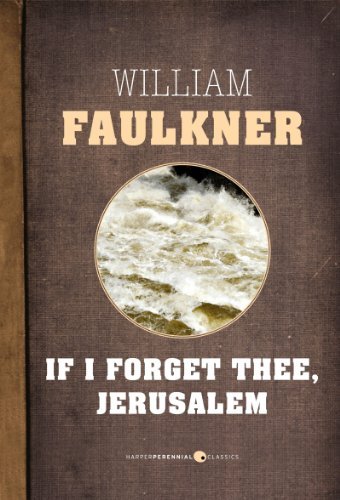What do you think?
Rate this book


Comprised of two inter-woven stories, William Faulkner’s If I Forget Thee, Jerusalem (also referred to as The Wild Palms) explores the nature of a relationship between a man and a woman. In The Wild Palms, the thoughtful and young Harry Wilbourne meets and falls in love with a married woman—the beautiful and passionate Charlotte Rittenmeyer. Though their relationship is under constant strain from Charlotte’s marriage, their lack of money, and the couple’s changing dynamic, the two remain fiercely loyal to one another during their brief time together. In The Old Man a convict tasked with rescue a pregnant woman who has become caught in a tree after the Mississippi River floods. As the convict rescues the woman, the pair are washed away downstream and must struggle back up-river together.
HarperPerennial Classics brings great works of literature to life in digital format, upholding the highest standards in ebook production and celebrating reading in all its forms. Look for more titles in the HarperPerennial Classics collection to build your digital library.
264 pages, Kindle Edition
First published January 1, 1939
“Yes. It’s love. They say love dies between two people. That’s wrong. It doesn’t die. It just leaves you, goes away, if you are not good enough, worthy enough. It doesn’t die; you’re the one that dies. It’s like the ocean: if you’re no good, if you begin to make a bad smell in it, it just spews you up somewhere to die. You die anyway, but I had rather drown in the ocean than be urped up onto a strip of dead beach and be dried away by the sun into a little foul smear with ne name to it, just This Was for an epitaph.”

“…habían intimado con el frío, profunda e inextricablemente por primera vez en la vida, un frío que dejaba una marca indeleble e inolvidable en algún rincón del espíritu y de la memoria como la primera experiencia sexual o la experiencia de matar a un hombre.”
“Cruzaron otro puente, dos paradójicos y delicados rieles de hierro emergiendo del agua, siguiendo un trecho paralelo a ella, luego sumergiéndose con una monstruosidad casi significativa aunque aparentemente insensata, como alguna cosa en un sueño que no es del todo una pesadilla”.
